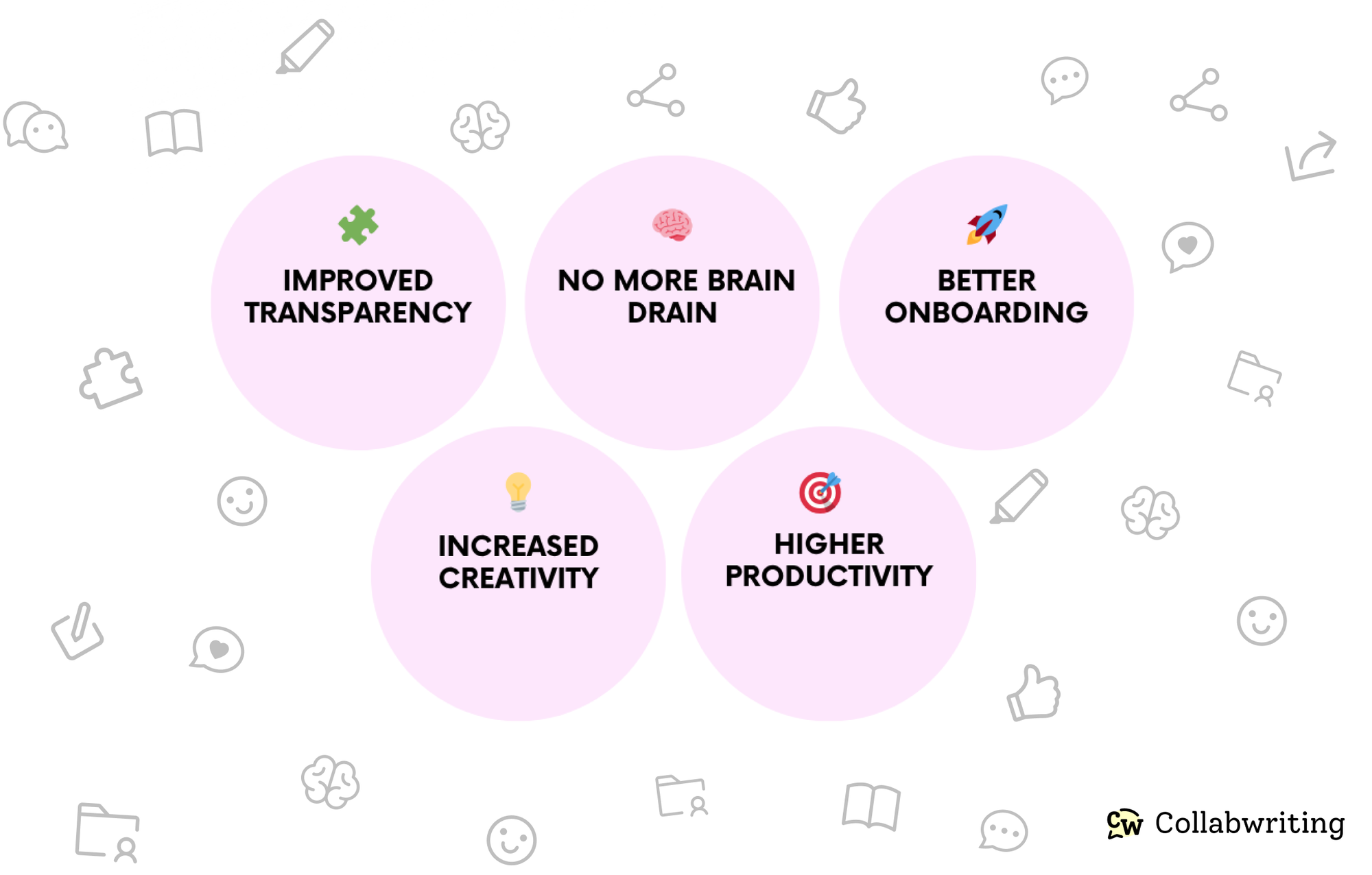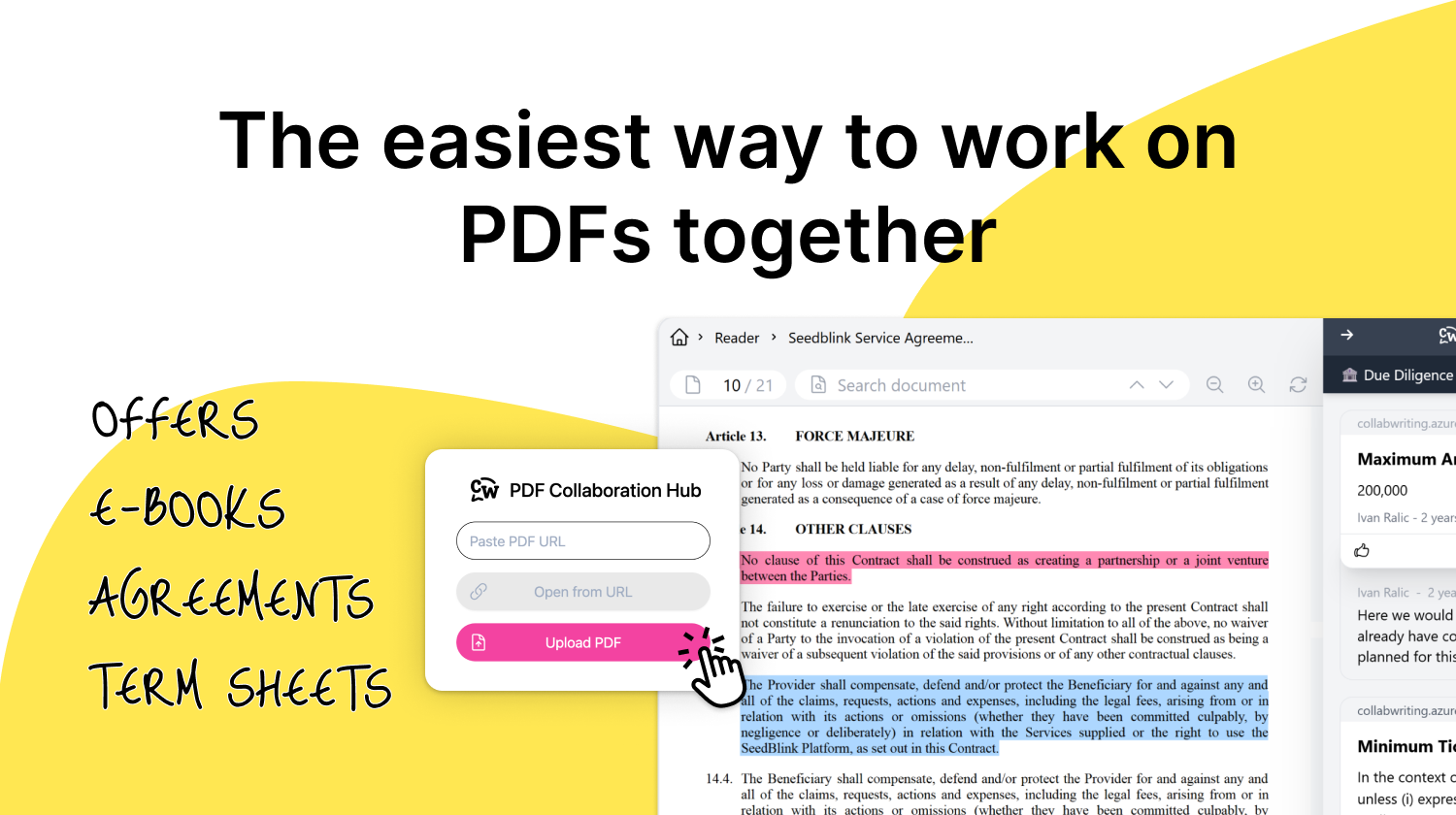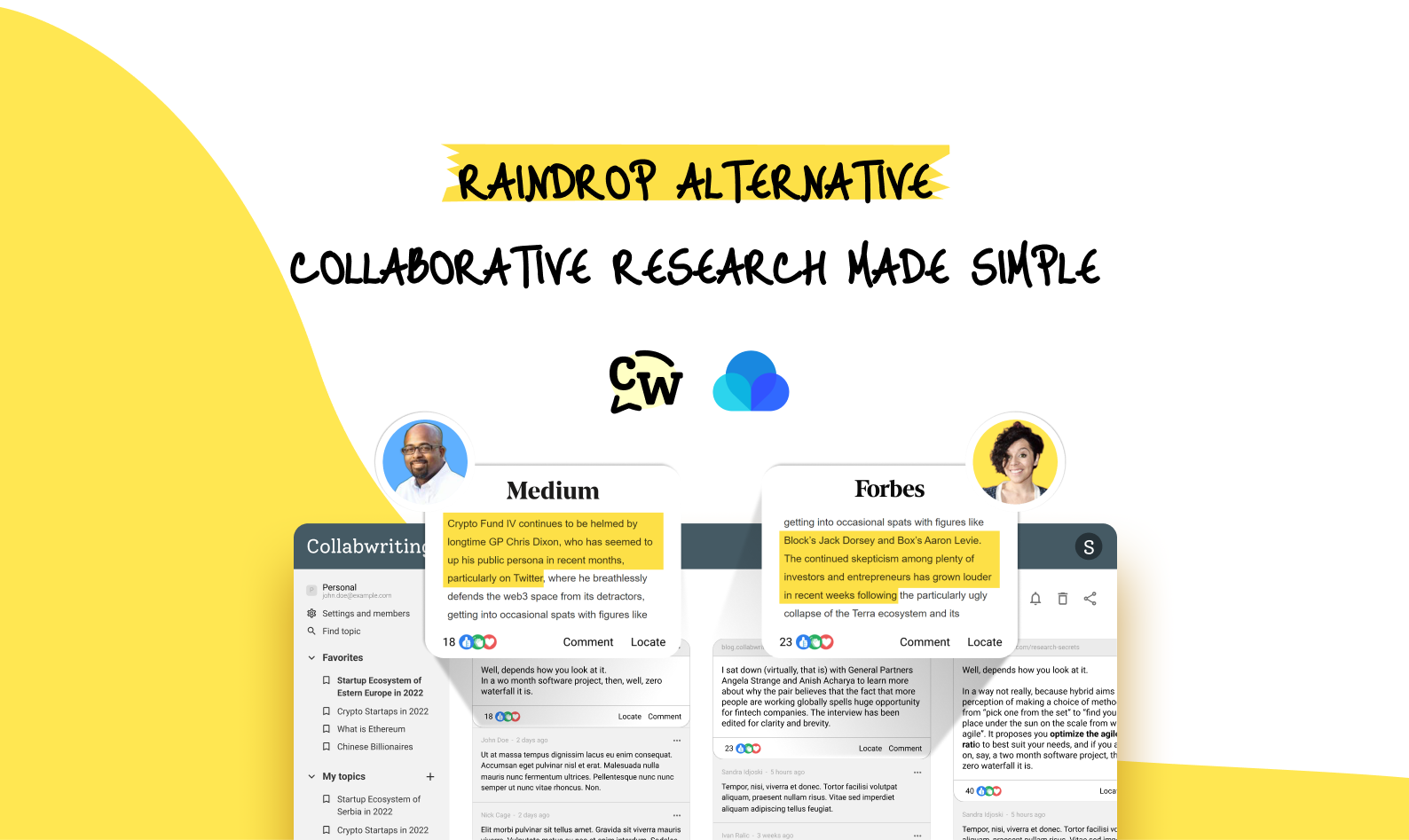You've probably heard the saying, ''Sharing is caring''.
In the workplace, sharing knowledge isn't just a nice idea, it's a core strategy for better teamwork, productivity, and long-term growth.
From small startups to large organizations, building a culture of knowledge sharing leads to smarter decisions, fewer repeated mistakes, and a team that learns and grows together.
From small startups to large organizations, building a culture of knowledge sharing leads to smarter decisions, fewer repeated mistakes, and a team that learns and grows together.
What is Knowledge Sharing?
Simply put, it's the exchange of information within an organization between team members and employees.
At its core, knowledge sharing is about creating an open space where people feel comfortable talking about wins, challenges, and plans together. Without that kind of environment, teams can struggle to get the best results.
Research shows that businesses can lose up to $31.5 billion each year due to a lack of knowledge and resource sharing among employees.
Studies consistently show that sharing knowledge within an organization boosts employee productivity, and when employees are productive, it paves the way for sustainable company growth.
John J. Murphy, author of Pulling Together: 10 Rules for High-Performance Teamwork says:
Each individual has unique gifts, talents, and skills. When we bring them to the table and share them for a common purpose, it can give companies a real competitive advantage.
Benefits of sharing knowledge in teams
When teams actively share knowledge, everyone wins.

Knowledge Sharing Secrets - Strategies for building Unicorn team
Businesses lose a huge $31.5 billion every year because they don't share knowledge and resources with their employees, according to studies. This problem is even worse in small teams where each member is vital.
Here’s how building a knowledge-sharing culture helps your team thrive:
Improved transparency and collaboration
Transparency - both inside and outside a company - is more important than ever.
As a customer, you’re likely to prefer a company that communicates openly and honestly. The same goes for the workplace; when team members are transparent with each other, it builds trust and strengthens collaboration.
When knowledge flows freely, teams understand the bigger picture. People are more aligned, trust grows, and collaboration becomes smoother across departments.
No more brain drain
Employees come and go, but their knowledge shouldn't. By capturing key insights as they happen, your team keeps valuable context and avoids starting from scratch when someone leaves.
From the research conducted by McKinsey, you can find out that employees spend 9.3 hours per week searching and gathering information.
Faster and smoother onboarding
New team members get up to speed quicker when they have access to past work, relevant resources, and real-life examples. It shortens the learning curve and helps them contribute sooner.
Gallup found that companies with engaged employees outperform others by 147% - and shared knowledge is a big part of that.
Increased creativity and innovation
Sharing different viewpoints, experiences, and learnings sparks new ideas. When people build on each other's thinking, creative solutions emerge more naturally.
Higher productivity and fewer repeated mistakes
Instead of reinventing the wheel or asking the same questions twice, team members can quickly find what they need.
That means less time wasted, and more time spent moving work forward.

Best knowledge sharing tools for teams
Building a strong knowledge-sharing culture requires more than just intention, it requires the right tools.
Whether you're sharing web research, internal docs, or lessons learned from a project, tools like Collabwriting make it easy to:
- Save and highlight insights across websites, PDFs, and videos
- Comment, tag, and organize by topic
- Share research contextually with your team
Instead of lost links and forgotten threads, everything stays accessible and reusable, even when team members leave.
How to build a knowledge sharing culture?
- Lead by example
Great leaders don't just talk about sharing knowledge, they actively do it. By openly sharing your insights, challenges, and lessons learned, you set the tone and show your team that knowledge sharing is valued and safe.
- Use knowledge-sharing tools that make the process easy and intuitive
The right tools remove friction. Whether it's a platform for saving research snippets, commenting on documents, or collaborating in real time, make sure your team has access to tools that fit naturally into their workflow.
- Encourage transparency and trust
Create an environment where team members feel comfortable sharing both successes and failures. When mistakes are treated as learning opportunities rather than punishments, people are more willing to be open and honest.
- Celebrate collaboration
Recognize and appreciate when people help each other grow. Publicly giving credit not only motivates individuals but also reinforces the value of knowledge sharing across the whole team.
- Document, document, document
Unshared knowledge is knowledge lost. Encourage your team to write down important insights, processes, and decisions. Well-documented knowledge ensures continuity and saves time for everyone, especially when onboarding new team members.
Final notes
Investing in knowledge-sharing tools and building habits around sharing knowledge at work creates long-term benefits:
✔️ More innovation
✔️ Faster onboarding
✔️ Resilient teams
Remember:
Knowledge isn't power unless it's shared.
Start small. Lead the change. And choose tools that make knowledge-sharing effortless.
Invest in a strategy that will pay off in the long run. It's a win-win for everyone!




![The Best Tool for Collaborative Research in Content Marketing Teams [2026]](/content/images/2025/12/image--5-.png)

![5 Tools Marketers Use to Organize Research - Compared [2026]](/content/images/2025/11/cover-4-1.png)

![Build Credibility in Research: Smart Way to Verify Information and Track Sources Easily [2025]](/content/images/2025/10/covers-for-blog--7--1.png)

![How Marketers Can Turn LinkedIn Content into Collaborative Research [2025]](/content/images/2025/10/covers-for-blog--8-.png)
![Best Readwise Alternative for Personal & Team Research [2026]](/content/images/2025/09/Frame-814--3-.png)

